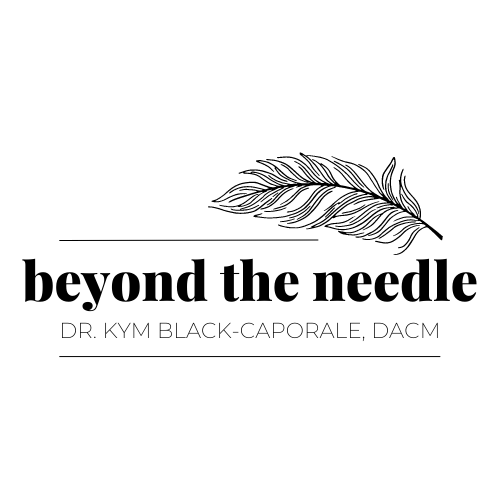-
 Kym Black-Caporale, DACMMain Office - 1445 Court St clearwater, FL
Kym Black-Caporale, DACMMain Office - 1445 Court St clearwater, FL
St. Pete office - 2806 16th St N St. Petersburg, FLCall (727) 521-0210 Clinic Hours
MonST.PETE OFFICE ONLY 12pm to 6pmTue9am to 7pm ClearwaterWed9am to 7pm ClearwaterThu9am to 7pm ClearwaterFricallSatcallSuncall
-
Latest Articles:
- • Add These 10 Immune-Boosting Foods to Your Fall Diet •
- • Keep Your Skin Healthy and Glowing with these Fall Skincare Tips •
- • Beat End of Year Burnout with these Fall Self-Care Rituals •

The Super Patch Company 

(727) 521-0210
- Sign up to receive news and updates and get my free report:“The Top 10 Reasons to Try Acupuncture”

Uncategorized
The Power of Consistency in Acupuncture Treatments
When it comes to acupuncture, one of the most vital yet often overlooked elements of effective treatment is consistency. While the ancient practice of acupuncture offers numerous health benefits, these benefits are maximized when treatments are regular and aligned with a well-thought-out plan of care. Here’s why staying consistent with your acupuncture appointments is crucial and how it can enhance your overall well-being.
### Understanding Acupuncture
Acupuncture is a traditional Chinese medicine practice that involves inserting thin needles into specific points on the body. These points, known as acupoints, are believed to be pathways through which the body’s vital energy, or “Qi,” flows. By stimulating these points, acupuncture aims to balance the body’s energy, alleviate pain, and promote healing.
### The Importance of a Plan of Care
An individualized plan of care is essential in acupuncture. This plan is tailored to address your specific health concerns, whether they involve chronic pain, stress, digestive issues, or other conditions. The plan outlines the frequency and duration of treatments, dietary recommendations, lifestyle changes, and other complementary therapies that can support your healing journey.
### Why Consistency Matters
1. **Cumulative Benefits**: Acupuncture works cumulatively. Each session builds on the previous ones, gradually restoring balance and addressing the root causes of your health issues. Sporadic or inconsistent treatments can disrupt this process, leading to less effective outcomes.
2. **Enhanced Healing**: Regular treatments help maintain the momentum of healing. Just as with physical therapy or medication, consistent application ensures that progress is steady and sustained, allowing your body to respond more effectively.
3. **Symptom Management**: Many conditions treated by acupuncture, such as chronic pain or anxiety, require ongoing management. Consistent treatments help keep symptoms in check and prevent flare-ups, contributing to a better quality of life.
4. **Adherence to Treatment Plans**: Sticking to your plan of care fosters a disciplined approach to health. It encourages you to follow through with other recommendations from your acupuncturist, such as dietary changes or stress-reducing activities, enhancing overall treatment efficacy.
### Tips for Maintaining Consistency
1. **Schedule Regular Appointments**: Set up your acupuncture appointments in advance and make them a priority. Consistency is easier when treatments are part of your routine.
2. **Communicate with Your Acupuncturist**: Keep an open dialogue with your acupuncturist about your progress and any challenges you face. They can adjust your plan of care to better suit your needs, ensuring it remains effective and manageable.
3. **Set Realistic Goals**: Understand that acupuncture is not a quick fix but a gradual process. Set realistic expectations and be patient with your progress.
4. **Incorporate Supportive Practices**: Complement your acupuncture treatments with supportive practices such as proper nutrition, exercise, and stress management techniques. These can enhance the benefits of acupuncture and contribute to overall well-being.
### Conclusion
Consistency is a cornerstone of successful acupuncture treatment. By committing to regular sessions and adhering to your plan of care, you can experience profound and lasting improvements in your health. Remember, healing is a journey, and every step taken with intention and consistency brings you closer to optimal well-being. Embrace the process, stay committed, and let acupuncture be a powerful ally in your path to health.
Adding Equine Therapy to Your Treatment Plan
The Healing Power of Horse Therapy for Stress and Anxiety: Integrating Energetic Functional Medicine
In the hustle and bustle of modern life, stress and anxiety have become common challenges for many individuals. While conventional treatments such as therapy and medication are widely used, alternative approaches like horse therapy (also known as equine-assisted therapy) are gaining recognition for their unique and effective benefits. Additionally, integrating energetic functional medicine into this therapeutic mix can enhance the overall healing process, providing a holistic approach to mental health.
#### Understanding Horse Therapy
Horse therapy involves interactions between individuals and horses, guided by a trained therapist. This form of therapy is rooted in the idea that horses, with their intuitive and responsive nature, can help individuals develop emotional awareness, build trust, and foster personal growth. The benefits of horse therapy for those experiencing stress and anxiety are numerous:
1. **Emotional Regulation**: Horses are highly sensitive to human emotions. Through interaction with horses, individuals learn to recognize and regulate their emotional states, leading to improved emotional stability.
2. **Mindfulness and Presence**: Working with horses requires individuals to be present and focused, promoting mindfulness. This can help reduce anxiety levels and increase a sense of calm and grounding.
3. **Building Trust and Confidence**: Developing a relationship with a horse involves building trust. This process can boost self-esteem and confidence, which are often undermined by chronic stress and anxiety.
4. **Physical Activity**: Engaging in horse-related activities provides physical exercise, which is known to reduce stress hormones and improve mood.
5. **Social Interaction**: Horse therapy often involves group settings, offering opportunities for social interaction and support, which can alleviate feelings of isolation common in anxiety disorders.
#### Integrating Energetic Functional Medicine
Energetic functional medicine focuses on restoring balance within the body’s energy systems, considering the individual as a whole – mind, body, and spirit. By incorporating principles of energetic functional medicine into horse therapy, the therapeutic experience can be deepened and personalized. Here’s how this integration can be beneficial:
1. **Energy Healing Techniques**: Modalities such as Reiki, acupuncture, or acupressure can be used alongside horse therapy to enhance the body’s natural healing processes. These techniques help clear energy blockages and promote a sense of well-being.
2. **Customized Nutritional Support**: Functional medicine emphasizes the importance of nutrition in mental health. Personalized dietary plans and supplements can be recommended to support brain health and reduce anxiety symptoms.
3. **Stress Reduction Practices**: Techniques such as yoga, meditation, and breathing exercises can be incorporated into the therapy sessions to further reduce stress and promote relaxation.
4. **Holistic Assessments**: Functional medicine practitioners often conduct comprehensive assessments to identify underlying causes of stress and anxiety, such as hormonal imbalances or nutritional deficiencies. This information can be used to tailor the horse therapy sessions to address these specific needs.
5. **Integrative Approach**: Combining horse therapy with energetic functional medicine offers a comprehensive approach to healing. While horse therapy addresses emotional and psychological aspects, functional medicine ensures that the physical and energetic aspects are also taken care of, leading to a more balanced and effective treatment.
Case Studies and Success Stories
Several case studies have highlighted the positive impact of integrating horse therapy and energetic functional medicine. For instance, individuals with generalized anxiety disorder reported significant improvements in their anxiety levels, emotional regulation, and overall quality of life after participating in combined therapy sessions. These success stories underscore the potential of this integrative approach to provide lasting relief and empowerment.
Horse therapy, with its unique ability to connect individuals with nature and promote emotional healing, offers a powerful tool for managing stress and anxiety. When combined with energetic functional medicine, the benefits are amplified, providing a holistic and personalized approach to mental health care. For those seeking alternative therapies, this integrative method presents a promising path to achieving balance, well-being, and a renewed sense of inner peace.
By embracing the synergy between horse therapy and energetic functional medicine, individuals can embark on a transformative healing journey that addresses not only the symptoms but also the root causes of stress and anxiety.
Ask us about a Session that combines Equine Therapy and Acupuncture.
We Do KinesioTaping!
Kinesiotaping: A Comprehensive Guide to Therapeutic Tape
Kinesiotaping, often recognized by the colorful strips of tape seen on athletes, has gained widespread popularity for its potential to enhance performance, support recovery, and alleviate pain. This therapeutic technique utilizes a specialized elastic tape, known as Kinesio Tape, to provide support and stability to muscles and joints without restricting the body’s natural range of motion. In this blog post, we will explore the principles behind kinesiotaping, its benefits, applications, and how it can be effectively used in both sports and everyday activities.
What is Kinesiotaping?
Kinesiotaping was developed by Dr. Kenzo Kase in the 1970s with the aim of aiding the body’s natural healing process while providing support and stability to muscles and joints. Unlike traditional athletic tape, Kinesio Tape is made from a thin, stretchy, and breathable material that mimics the skin’s elasticity. This allows it to move with the body and provide dynamic support.
How Does Kinesiotaping Work?
Kinesiotaping works by lifting the skin slightly away from the underlying tissues. This decompression effect can improve blood and lymphatic circulation, reduce inflammation, and provide pain relief. The tape’s elasticity supports and stabilizes the muscles and joints, promoting proper alignment and function.
Benefits of Kinesiotaping
1. **Pain Relief**
Kinesiotaping can help alleviate pain by reducing pressure on pain receptors in the skin and improving circulation. This can be particularly beneficial for conditions such as muscle strains, joint pain, and tendinitis.
2. **Enhanced Performance**
For athletes, kinesiotaping can enhance performance by providing support to muscles and joints without restricting movement. This can lead to improved endurance, strength, and coordination.
3. **Injury Prevention**
By providing additional support to muscles and joints, kinesiotaping can help prevent injuries, especially during high-intensity activities or repetitive motions. It can also help maintain proper posture and alignment, reducing the risk of strain.
4. **Reduced Swelling and Inflammation**
The tape’s lifting effect can facilitate lymphatic drainage and reduce swelling and inflammation. This is particularly useful for managing conditions such as lymphedema and acute injuries.
5. **Improved Muscle Function**
Kinesiotaping can help improve muscle function by promoting proper activation and relaxation. This can be beneficial for conditions involving muscle imbalances or weakness.
Applications of Kinesiotaping
Kinesiotaping is used in a variety of settings, including sports, rehabilitation, and everyday activities. Here are some common applications:
1. **Sports Injuries**
Athletes often use kinesiotaping to manage and prevent injuries such as sprains, strains, and overuse injuries. It can provide support to specific muscle groups and joints during training and competition.
2. **Post-Surgical Recovery**
Kinesiotaping can aid in post-surgical recovery by reducing swelling, supporting affected areas, and promoting proper movement patterns.
3. **Chronic Pain Conditions**
Conditions such as arthritis, fibromyalgia, and lower back pain can benefit from kinesiotaping by providing pain relief and improving function.
4. **Posture Correction**
Kinesiotaping can help correct poor posture by supporting proper alignment of the spine and shoulders. This can be particularly useful for individuals who spend long hours sitting or standing.
Kinesiotaping is a versatile and effective tool for managing pain, enhancing performance, preventing injuries, and supporting recovery. Its dynamic support and therapeutic benefits make it a valuable addition to both athletic and everyday settings. Whether you are an athlete looking to improve performance, recovering from an injury, or simply seeking relief from chronic / acute pain, or neuropathy pain kinesiotaping offers a non-invasive and practical solution.
The Vital Role of Vitamin D3: Understanding Its Benefits and Sources
Vitamin D3, also known as cholecalciferol, is a crucial nutrient that plays an essential role in maintaining our overall health. While often associated with bone health, Vitamin D3’s benefits extend far beyond. In this blog post, we will delve into what Vitamin D3 is, its numerous health benefits, the consequences of deficiency, and how you can ensure you’re getting enough of this vital nutrient.
What is Vitamin D3?
Vitamin D3 is one of the two main forms of Vitamin D, the other being Vitamin D2 (ergocalciferol). Unlike most vitamins, Vitamin D functions as a hormone, regulating calcium and phosphorus levels in the blood and promoting healthy bone and immune system function. Our bodies naturally produce Vitamin D3 when our skin is exposed to sunlight, specifically UVB rays.
Health Benefits of Vitamin D3
1. **Bone Health**
Vitamin D3 is essential for the absorption of calcium in the gut, which is necessary for the formation and maintenance of strong bones. Adequate levels of Vitamin D3 help prevent rickets in children and osteomalacia in adults. It also plays a role in preventing osteoporosis, a condition characterized by weak and brittle bones.
2. **Immune System Support**
Vitamin D3 is known to enhance the pathogen-fighting effects of monocytes and macrophages, white blood cells that are critical to immune defense. It also decreases inflammation, which can help in managing autoimmune diseases and reducing the risk of infections.
3. **Mood and Mental Health**
There is growing evidence that Vitamin D3 may play a role in regulating mood and warding off depression. Some studies suggest that Vitamin D3 deficiency is linked to an increased risk of mood disorders, including depression and seasonal affective disorder (SAD).
4. **Cardiovascular Health**
Vitamin D3 has been shown to influence heart health by regulating blood pressure, reducing inflammation, and improving overall cardiovascular function. Some research indicates that adequate Vitamin D3 levels may reduce the risk of heart disease.
5. **Muscle Function**
Vitamin D3 contributes to muscle function by improving muscle strength and performance. This is particularly important for older adults, as it can help reduce the risk of falls and fractures.
Sources of Vitamin D3
1. **Sunlight**
The most natural way to obtain Vitamin D3 is through sunlight exposure. Spending 10-30 minutes in the midday sun several times a week can help maintain adequate levels. However, factors such as geographic location, skin pigmentation, and sunscreen use can affect Vitamin D3 synthesis.
#### 2. **Dietary Sources**
While fewer foods naturally contain Vitamin D3, some are excellent sources:
– Fatty fish (salmon, mackerel, sardines)
– Cod liver oil
– Egg yolks
– Fortified foods (milk, orange juice, cereals)
#### 3. **Supplements**
Vitamin D3 supplements are an effective way to ensure adequate intake, especially for individuals who have limited sun exposure or dietary restrictions. These supplements are available in various forms, including tablets, capsules, and liquids. Consult with us for a D3 supplement that comes from a great source and is the real deal.
Recognizing and Addressing Vitamin D3 Deficiency
Vitamin D3 deficiency can lead to a range of health issues, including bone pain, muscle weakness, increased risk of fractures, and a weakened immune system. It is diagnosed through a blood test measuring the level of 25-hydroxyvitamin D. We can help you with getting the script for blood work and then getting you on the correct dosage.
Vitamin D3 is a powerhouse nutrient with far-reaching health benefits. By understanding its importance and ensuring adequate intake through sunlight, diet, and supplements, you can support your bone health, immune function, and overall well-being. Don’t underestimate the power of this essential vitamin—make it a priority in your health regimen.
Stay informed, stay healthy!
How Dental Health Correlates to Reproductive Health
As an acupuncturist and an integrative practitioner , I find that I must cover all aspects of a patients health and adding dental health to fertility health is a must !
Dental health can potentially influence fertility in a few significant ways. Chronic dental and gum diseases can cause inflammation and infections that may affect other systems in the body, including reproductive health.
1. **Systemic Inflammation**: Periodontal disease, a common dental problem characterized by gum inflammation and infection, can lead to increased systemic inflammation. This inflammation may potentially affect ovulation, implantation, and overall fertility in women and could also impact sperm health in men.
2. **Infection Spread**: Severe periodontal disease can allow bacteria to enter the bloodstream, potentially affecting other body systems. For women, these bacteria could impact the reproductive organs, potentially complicating pregnancy or fertility.
3. **Hormonal Interactions**: Dental health might also interact with hormonal balances. For example, pregnancy can lead to changes in dental health due to hormonal variations, and similarly, these hormones could theoretically impact dental health and subsequently fertility.
4. **Overall Health**: General health, including dental health, plays a role in fertility. Poor dental health is often associated with other health issues such as diabetes and cardiovascular disease, which can also impair fertility.
Maintaining good oral hygiene and addressing dental issues promptly are part of overall health maintenance, which is crucial when trying to conceive. Regular dental check-ups can help manage these risks.



